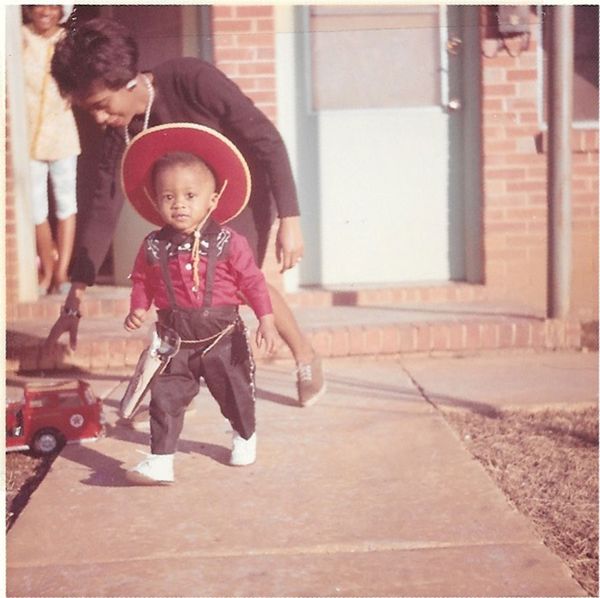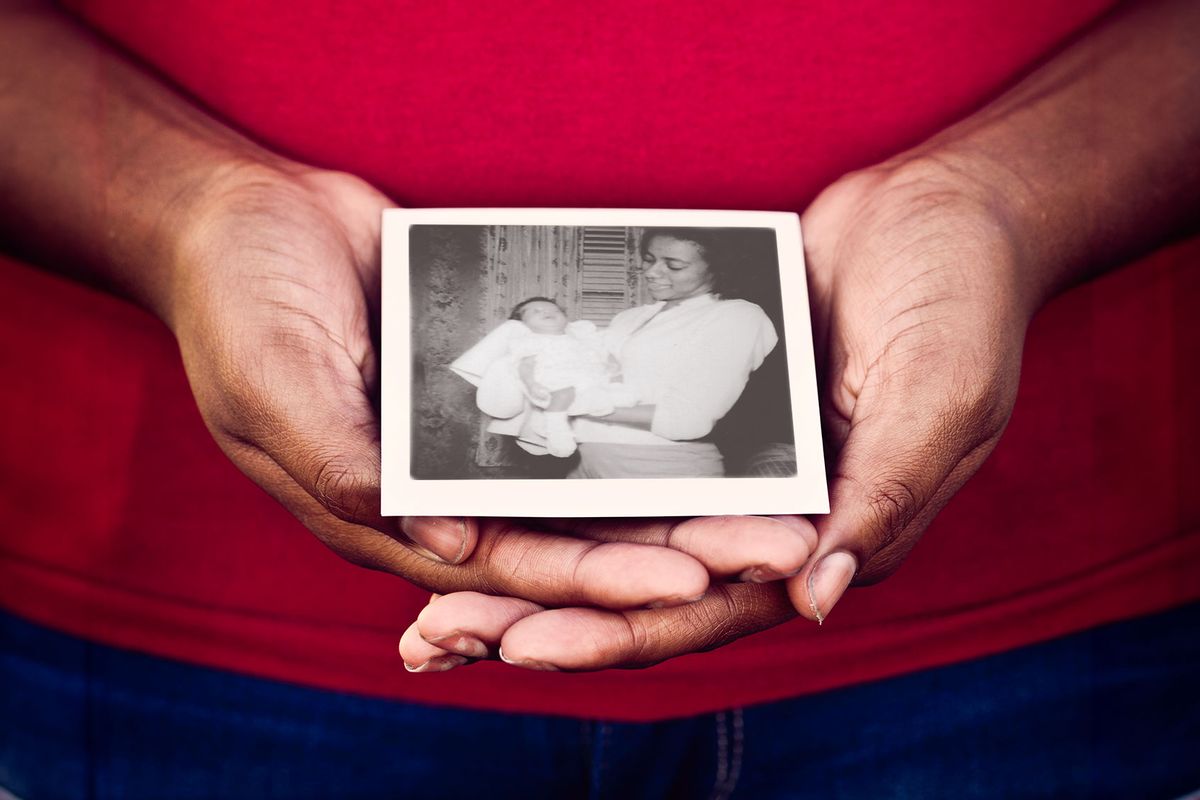I remember, as if it were yesterday, sitting in an Alabama church as the Baptist preacher eulogized my grandmother. I waited patiently for tears to stream down my cheeks. They did not.
Only days before, I’d received notification my grandmother had died from one of the four roommates I shared a house with on Harvard Street in Washington, D.C. It was 1982 and I was a student at Howard University. I’d gone to the fall Homecoming concert featuring musical groups Time and Vanity 6 at Crampton Auditorium on campus. This was before cellphones, texting and other instant communication, so my mother had to call the police station in D.C., give them my address, and ask them to send a patrol car to our house where the message was relayed to me before I was about to go inside the auditorium.
I remembered being in that church — numb, unsure of how to act or respond to death. I’d been close to Grandmother. I loved her dearly; yet, I did not cry.
I wanted to display a sense of love and affection, that tenderness death exposes. I wanted Grandmother to know the crater she left inside my heart was gargantuan, unfillable. However, it is difficult to escape the lessons of supposed manhood from neighborhood cats that specialized in the art of misogynistic behavior, believed in preying on the weak, and being a real N___ was the only thing in life to aspire to. What I mean is from an early age both inside and outside the home, I was taught real men don’t cry. They bet not.
The majority of this I had learned by the tender age of eight, from pouring shots of white and red liquor in my grandmother’s shot house.
During this transformation from college student to drug seller, my mother and I had a difficult time being in the same room without arguing about my life choices.
My grandmother’s shot house was frequented by men hardened by the weatherworn elements of time, those tiny particles of memory that refuse erasure. They held it all in. There was no crying. The emotive was damn near mythological and prohibited by the innate laws that governed these men. I watched them. I learned from them. I wanted to be them.
It was an environment my mother was accustomed to as well, having come of age in that old veridian clapboard house, an experience she never wanted to talk about, especially what it was like for a young woman to be present in a place that sexualized women on the daily. Even before my grandmother died, my mother and I always had this sort of brokenness, a fractured claim to connection. It seemed like we would never find a way to bond as mother and son, or wade in an emotional state of comfort.
By the time I was in that southern church processing Grandmother's death, I’d become a participant in the national narrative of cocaine through a Cuban cartel operating out of Miami.
In the future version of Randall, there would be twin-engine planes, cigarette boats moving through Caribbean waters with fiberglass kilos headed to Miami. There would also be homelessness and prison. There would be near-death misses, near-deaths attempted. I was a lost human drifting through the corridors of consciousness. What I am trying to say is I had become immersed in a culture of drugs. At the time of my grandmother’s death I was a college student in name and appearance only.
I was straddling a wafer-thin allegorical fence: The young man my parents wanted me to be versus who I was becoming.
During this transformation from college student to drug seller, my mother and I had a difficult time being in the same room without arguing about my life choices. To be honest, I did not make it easy. I rebelled at authority. Our disagreements were intense, mainly because, in the end, I wanted her to love me in a way I could not express. So I acted out, even as an adult. Perhaps my father saw this dynamic play out more than anyone, and when I was alone and angry, he would only offer, “You and your mother are just alike.”
My mother was never easy on me. Even as a boy she demanded I be tough, that I not cry. One time when I was homeless in D.C., I called the house late one night, and while my dad wanted to talk to me, my mother told my dad to hang up the damn phone. If I am honest with myself, I know why. I needed a tough love because a conventional love wasn’t working. It would take many years to understand my mother, that the silence she lived with growing up around her mother, the things she witnessed, it all played a part in how she raised me as her son. She saw how society withered those men up and took the joy out of living before they returned to the dirt. The booze, the women of the night, the gambling, the cons, all of these factors of the living she grew up around, as did I.
The day before my mother passed, I was at home in Birmingham, Alabama.
My mother had recently suffered a mild stroke, so mild she wasn’t aware until she went to the hospital and the doctor confirmed bleeding on the brain. The prognosis seemed to be good, so I did not fly home. I came two months later on my way to a literary conference in Dallas.
Perhaps my father saw this dynamic play out more than anyone, and when I was alone and angry, he would only offer, “You and your mother are just alike.”
The night before my flight departed for Texas, I was working on my panel presentation in my father’s office downstairs when I looked up and saw my mother lingering in the doorway with the most angelic smile. At that moment, wading in my own silence, I felt the sincerest connection I’d ever shared with my mother. Her glowing face was full of innocent youth. It was as if she were a teenager, and I was meeting her for the first time. My mother proceeded to explain she’d backed the car out of the garage and back in. A simple task, but for her it was validation that she was on the road to full recovery.
When I finished my panel the next day in Dallas, I checked my cell phone only to see way too many missed calls from my brother-in-law. The sheer volume told something was wrong. My mother had suffered a severe stroke. I needed to return to Birmingham immediately.
At the hospital my dad, sister and I received the prognosis there was nothing else to do, that she would never regain consciousness. My mother would hang between the balance of life and death for the next five days. I could only think back to our exchange in the doorway of my father's office, that moment when whatever we were battling against with each other was over. In many ways that moment told me that whatever connection we had or did not have, I was her child, and she was my mother. The only way I knew to deal with the impending loss was to visit mother every day in the hospital and read her passages from my soon-to-be published book, "Dead Weight: A Memoir in Essays."
The first essay I read was from “November 2nd and A Mother’s Love,” in which I recall my mother and I attending the Inaugural Ball in honor of President-elect Barak Obama.
I wanted my mother to know how special that moment was when we shared the first dance, dressed to the nines in formal attire in the nation’s capital. This dance came after a five-year bid inside the carceral state, after two years in a drug program, a bachelor's degree, an MFA, and a PhD. After the PhD came my first tenure track job. I was now following in the shadow of my mother, also a lifelong educator.
The second passage came from my essay, “Eleven Days.” It took my mother 57 years to reveal to me — or rather, to my wife, on a visit after our marriage — that after my premature birth in 1961, I’d been separated from my mother for 11 days, for the sole reason of race. I recount what it must have felt like for her to have a child and then not have a child. For all the reasons in the world, this revelation made sense in terms of our broken claim to connection, and why we’d been on this journey since my birth.
Though my mother could not formulate words, I could stare into her fading eyes, and as I did, I became in sync with her every breath. I’d like to think she saw the passion, the writer in me, and never imagined this to be my destiny. I uttered the most difficult words I've had to speak when I told her, "It is OK to let go."
 Author at 5 months old (Photo courtesy of Randall Horton)
Author at 5 months old (Photo courtesy of Randall Horton)
I cried at the foot of her bed like I’d never lived by the code that weeping is for the weak. I didn’t give a damn. Whatever it was that I could not articulate had to come out. And in the crying came the baptism, and after the baptism came a sense that our love had always been that of mother and son, and maybe in the progression of death we truly understood each other. This was my mother’s final gift to me.
At the funeral, it was assumed, that I — the writer — would say something.
I sat in that same basement study where I last saw my mother alive, and after another good cry, the first words I wrote were: “Come celebrate with us this life of longevity, a life realized through a commitment to service and achievement, taking every inch of what this social order gives, with all its constructs and ideologies within a nation that never could have imagined the existence of the strong Black woman — who is often cloaked in a sort of invisibility.” I wanted my mother to know she was never invisible.
I returned home a motherless child.
The next morning, while working on a creative nonfiction essay on my backyard deck in North Jersey, two doves appeared on the wooden railing. It is a backyard visited by darting sparrows and dignified blue jays lingering in the skeletal tree branches of spring. Sometimes against the background of a shed and garden, cardinals flash their emblematic red wings. But never doves.
As a poet, I viewed these two birds as Grandma and Momma, the two most important women in my life, checking in on me, letting me know they are always here, there, everywhere.

Shares